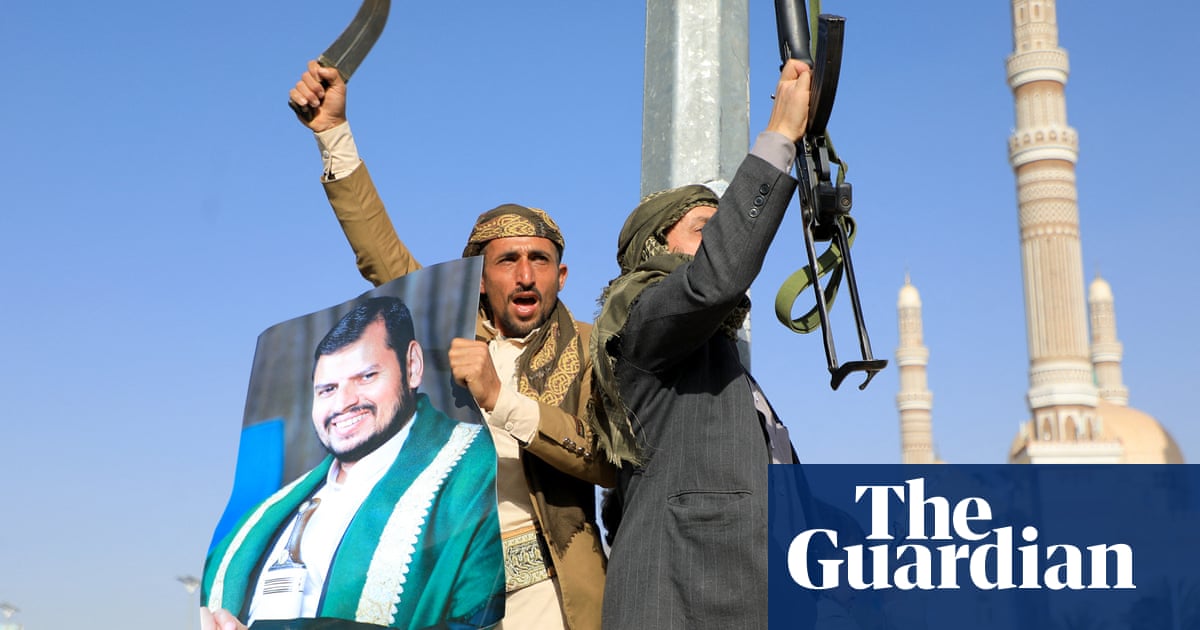
British monarch Queen Elizabeth II’s message of sadness on the death of the emir of Kuwait, Sheikh Sabah Al-Ahmad Al-Sabah, which recalled his lifetime of devotion to Kuwait, his visit to the UK in 2012, and his commitment to “understanding between nations and between faiths,” encapsulated the UK’s sense of loss. For the second time this year, the Prince of Wales this week found himself in the Gulf mourning a valued friend, as he had been in Oman in January following the passing of Sultan Qaboos.
As with Oman, the UK’s ties with Kuwait are deep. A treaty of friendship was signed in 1899 and upon that has been built diplomatic, commercial and security links. These have endured through the years and Sheikh Sabah built on them both during his lengthy tenure as foreign minister and as emir. That these bonds were more than symbolic was made clear by the invasion of Kuwait by Saddam Hussein in 1990 and the UK’s role, with other allies, in fierce response. Such was the devotion to Kuwait of the remarkable widow of a former British consul, Dame Violet Dickson, that at the age of 93 she had to be unwillingly evacuated from her Kuwait City home during the crisis. Her story became a symbol of the two countries’ friendship.
I was privileged, as UK minister for the Middle East, to attend ceremonies in 2011 to mark not only 50 years of independence for Kuwait, but also to commemorate the 20th anniversary of its liberation. Sheikh Sabah’s visit to the UK the following year saw the inauguration of the UK-Kuwait Joint Steering Group, a forum I regularly chaired with my friend, Deputy Foreign Minister Khaled Jarallah, which has further enhanced our understanding of each other’s positions on contemporary matters, both bilateral and regional.
As a junior foreign minister, I spent only fleeting moments of time with heads of state, so I remember those who treated a figure well below them in a hierarchical world with kindness and consideration. Sheikh Sabah was one such. I am unlikely to forget a lunch where we sat together and he took the trouble to converse with me on many things, including horses, falconry and the Queen and her long reign, as we worked our way through the 18 small plates of mezze before us.
These brief reminiscences are not incidental. The personalities of leaders shape nations and events and, in a region that has become as fractured and complex as the Middle East and in societies where individual leadership counts for a great deal in terms of direction of policy, those personalities count for even more. The reputation Sheikh Sabah won for his commitment to diplomacy, his willingness to act as mediator and desire to seek to reconcile those involved in even the most intractable of disputes cannot be separated from the personality I was privileged enough to glimpse, but which others knew far better.
His long period as foreign minister was marked by a determination to seek and preserve Gulf and Arab unity, and he played a key role in the creation of the Gulf Cooperation Council (GCC) in 1981. He retained that determination all his life, though it was tested regularly. In the present difficulties of the GCC, it was to Kuwait that others, including the UK, turned for guidance as to how differences might be resolved, knowing that the stakes were high and that those from outside who wished ill on the region stood to gain most from the situation remaining unresolved.
In a Middle East where memories are long, I found it particularly impressive and of note that it was Kuwait that hosted the conference for Iraq in the early part of 2018, bringing together dozens of states in an effort to secure funding for the rebuilding of a country that had been devastated by conflict and insurrection.
Kuwait’s own billions of dollars of support helped to ensure the pledges of others. With the occupation of his own country within short memory, the example set by Sheikh Sabah in gathering nations to support the Iraqi people should not be allowed to slip by. Reconstruction and rebuilding goes beyond the physical; it gets to the soul of the relationships between those who stand together after the horrors of conflict.
Aside from the sense of personal loss for the people of Kuwait, those beyond will not only mourn but wonder who will take up his role in the Gulf? The loss in less than 12 months of two senior, esteemed and knowledgeable figures, whose temperaments allowed them to find ways to cool the heat of a region changed beyond recognition during their long lifetimes, leaves a gap that will be hard to fill. It is to be earnestly hoped that, among the grieving, there will be an awareness that finding the right people or processes to ensure that such efforts continue and prosper would be a fitting legacy.
Alistair Burt is a former UK Member of Parliament who has twice held ministerial positions in the Foreign and Commonwealth Office — as Parliamentary Under Secretary of State from 2010 to 2013 and as Minister of State for the Middle East from 2017 to 2019. Twitter: @AlistairBurtUK
Disclaimer: Views expressed by writers in this section are their own and do not necessarily reflect Arab News" point-of-view











